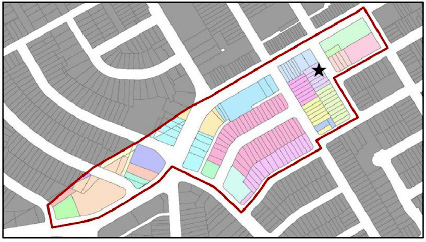A new study of Canadian lottery winners concludes that winning a big prize increases the likelihood of subsequent bankruptcies. But not for the prize winners themselves. Just for the folks who live next door: “We find that a C$1,000 increase in the lottery prize causes a 2.4% rise in subsequent bankruptcies among the winners’ close neighbors.”
OK. That’s interesting. The problem is what comes next when the researchers try to explain why the neighbors of lottery winners go bust. Here is Tim Lee’s nickel summary:
The clever study is one of the first to provide statistically rigorous evidence for a claim that seems plausible but is hard to prove: that rising inequality causes people to spend beyond their means in an effort to “keep up with the Joneses.”…And while big lottery winnings are rare, the study could have much broader implications. Critics of income inequality have long argued that large income disparities make people unhappy. The Philly Fed study provides further evidence for this point of view. While it focuses on lottery winners, the same basic problem is likely to arise anytime some people enjoy rapid income growth at the same time that others’ incomes are not rising.
I’m not so sure about that. The researchers actually found two things:
 Bankruptcies increased among the winners’ near neighbors.
Bankruptcies increased among the winners’ near neighbors.- Bankruptcies didn’t increase among neighbors who were slightly farther away.
And when I say “slightly,” I mean slightly. The map on the right shows the difference. A typical lottery winner is shown by the star. “Inner ring neighbors” are ones with the same postal code, in purple. “Outer ring neighbors” are the rest of them. In other words, a separation of literally 50-100 feet is enough to wipe out the entire effect. If large income disparities really do make people unhappy, it only seems to do so if they live within a few doors of some conspicuously consuming rich person. Needless to say, this is fairly rare given the fact that rich people tend to live in entirely different neighborhoods than poor people.
Now, I suppose you can argue that being exposed to conspicuous consumption on TV produces the same feelings of envy as living next door to a friend who just won the lottery and bought a shiny new car. But you’d have to produce some evidence for that, since they’re very different things. For the time being, count me as skeptical.















